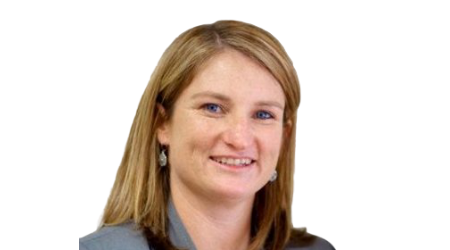
The San Foundation is committed to supporting the Sydney Adventist Hospital in the provision of world class medical care to its patients.
Karen Gair has been the Managing Director of the San Foundation for over a year. Karen tells us about the challenges and priorities of the San Foundation, the difficulties faced in fundraising and what you need to run a successful not-for-profit.
You joined the San Foundation as Managing Director at the start of 2018. What’s the purpose of the San Foundation and what are your responsibilities?
We are here to support the Sydney Adventist Hospital, affectionately known as The San. Our donors help to fund state-of-the-art equipment, treatment and research. My role is to lead, educate and encourage our team and the hospital staff to identify giving opportunities and grateful patients. I hope I make every donor feel appreciated and that they understand the positive impact their giving has. Along with the board of directors, I am responsible for the governance, strategy, operations and overall performance of the San Foundation.
What are the strategic priorities for the San Foundation*?
In the past five years, our donor numbers have halved. In 2006, our donor retention rate stood at over 70% and today it’s 21%. I’m appalled by those figures. We need to do a better job at proving to donors we are worthy of their hard earned money. To me that’s a communication issue. The hospital clinicians are some of the world’s best, and the San, deservedly, is renowned for its wonderful beside care. Donors augment that mix by helping to fund the latest equipment, treatment and research to deliver the optimal patient experience. We just have to do a better job at letting donors know the difference they make and not taking them for granted. Along with improving donor retention, I’ll be focused on implementing a grateful patient program and a major giving program.
How did your career progress towards where it is today? Have you always worked in the NFP sector?
I started my career as a journalist and I’ll be forever grateful for the grounding that gave me as a fundraiser. Sensing and teasing out a good story and developing someone’s trust quickly are skills I use every day. My curiosity to learn and know more about people and my innate social justice bent made the transition from journalism to philanthropy quite easy. For the past 17 years, I have worked in the NFP sector, primarily in development for schools and universities after I was hired as a development officer for a secondary school with no experience. Fortunately, fundraising was my calling, and with the guidance of some wonderful mentors along the way, I can’t think of anything else I would prefer to be doing.
What’s your secret for success at executive director level?
People tell me that my honesty and authenticity is refreshing. I like to ensure I am consistent with what I say and what I believe. Fortunately, I’m passionate about what I do and I think that genuineness has served me well. I want staff to enjoy coming to work and knowing they are contributing to something worthy. I think the more my career has progressed, the easier it has become to have a challenging conversation or own a tough decision because I haven’t avoided them along the way. I think good leaders just own the good and the bad and aren’t fearful of that. There’s no shame in being human and getting it wrong, as long as you learn from it and take responsibility.
What challenges have you faced?
I work in a hospital environment surrounded by patients and families sometimes facing enormous health challenges, so I think my challenges pale into insignificance in that context. Major gift fundraising and leadership, in general, can sometimes be viewed as a man’s domain and I’m sure I’ve encountered the same frustrations and misjudgment as others during my career. But it’s not something I dwell on. Any challenge I’ve ever had has taught me something and I hope I’ve learnt and grown from those challenges.
What elements do you think you need to have in place to run a successful not-for-profit?
The only real assets you have in this business are your staff and your database, so I work hard at ensuring the development and integrity of both. A knowledgeable and supportive board is also essential, and again I’m grateful to have that at the San Foundation. I think the other crucial element to have in place is a strong sense and attitude about the importance of donor centricity. A lot of people pay lip service to putting the donor first. I think without the ability to empathize with what a donor is needing and without good structures, policies and procedures that support a donor centric culture, you won’t be successful.
How would you describe your experience with NGO Recruitment?
Richard Green from NGO Recruitment has been a companion on much of my career journey and I have always appreciated his knowledge and expertise about fundraising. In my experience, many recruitment professionals in this sector don’t know what it takes and means to be a good fundraiser and I’m glad that Richard and many staff at NGO are the exception.
Thank you for your time Karen. If you would like to support the San Foundation click here.
